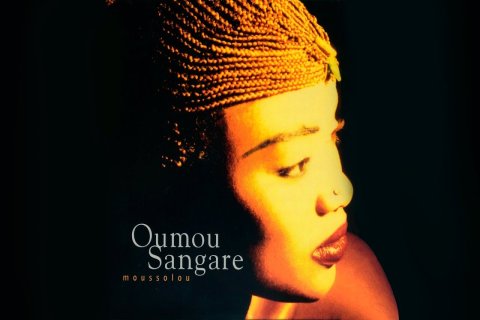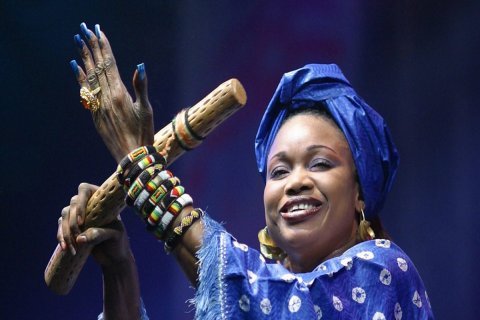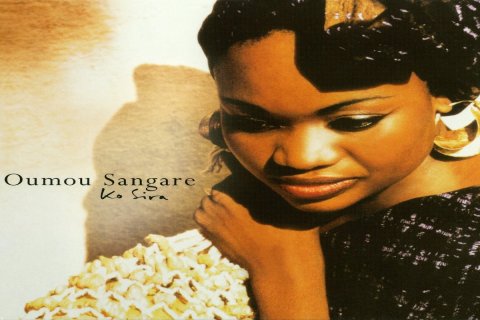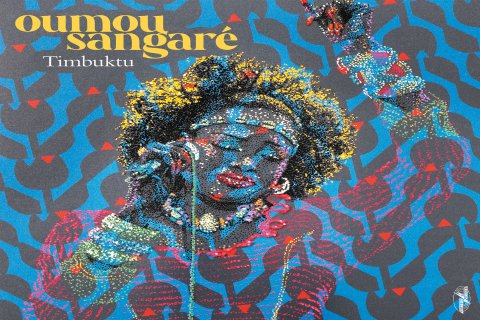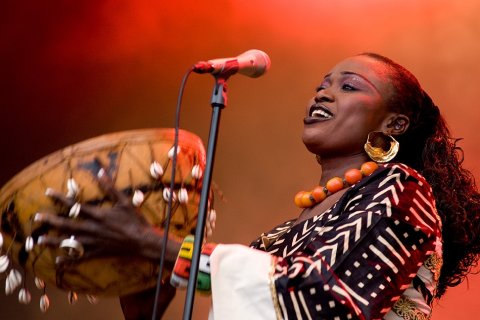Oumou Sangaré
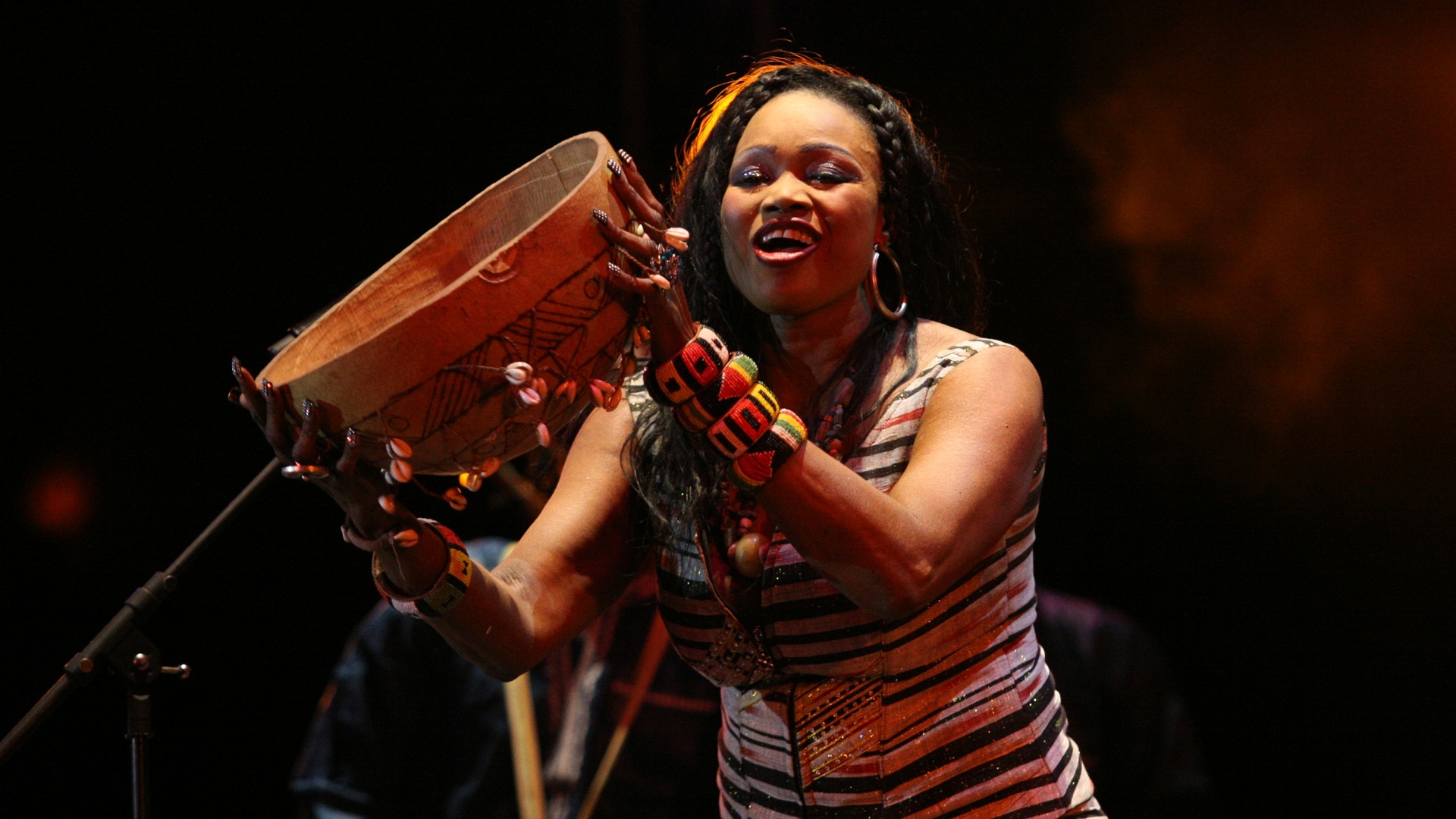
Oumou Sangaré (born February 25, 1968) is a Malian Wassoulou singer, songwriter and composer. She is one of the most popular and critically acclaimed musicians from Mali. Her music is rooted in the Wassoulou tradition, a style of music from the Wassoulou region of Mali, but she has also incorporated elements of other genres, such as blues, jazz, and pop. Sangaré's music often addresses social and political issues, and she has been an outspoken advocate for women's rights and social justice.
Sangaré was born in Bamako, Mali, the daughter of a Wassoulou griot. She began singing at an early age, and by the time she was 16, she had formed her own band. In 1989, she released her debut album, Moussolou, which was a critical and commercial success. The album was followed by a series of successful albums, including Ko Sira (1993), Worotan (1996), and Oumou (2003).
Sangaré's music has been praised for its beauty, energy, and social consciousness. She has been compared to other great African singers, such as Miriam Makeba, Cesária Évora, and Ali Farka Touré. She has won numerous awards, including the Grammy Award for Best Traditional World Music Album in 2004.
In addition to her music career, Sangaré has also been involved in a number of social and political initiatives. She is a Goodwill Ambassador for the United Nations Development Program (UNDP), and she has worked with organizations such as the World Health Organization (WHO) and the United Nations Population Fund (UNFPA) to promote women's health and rights.
Sangaré is a powerful and influential voice in African music and society. Her music has brought the Wassoulou tradition to a worldwide audience, and her advocacy for women's rights and social justice has made her a role model for women around the world.

